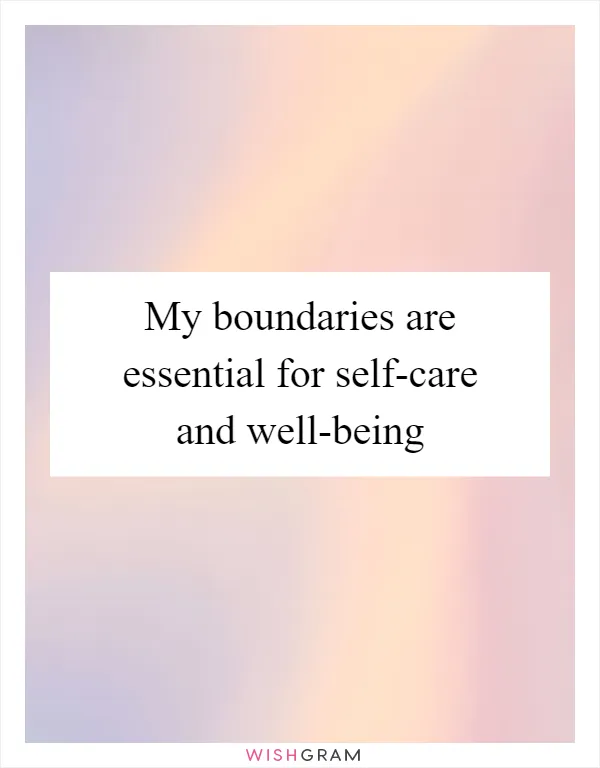My boundaries are essential for self-care and well-being
The affirmation "My boundaries are essential for self-care and well-being" is a reminder that you have the right to set limits and protect your physical, emotional, and mental health. Boundaries are like a fence that surrounds your personal space and helps you maintain a sense of safety and control over your life. Without boundaries, you may feel overwhelmed, stressed, and drained by the demands and expectations of others.
Setting boundaries means being clear about what you will and will not tolerate in your relationships, work, and daily life. It means saying no to things that don't align with your values, priorities, and goals. It also means communicating your needs and expectations to others in a respectful and assertive way. Boundaries are not about being selfish or rude, but about taking responsibility for your own well-being and respecting the boundaries of others.
When you have strong boundaries, you are less likely to be taken advantage of, manipulated, or abused by others. You are also more likely to attract healthy and supportive relationships that honor your boundaries and contribute to your growth and happiness. Boundaries can help you avoid burnout, anxiety, and depression by giving you the space and time you need to recharge, reflect, and pursue your passions.
However, setting boundaries can be challenging, especially if you have a history of people-pleasing, codependency, or low self-esteem. You may fear rejection, conflict, or guilt when you assert your boundaries, or you may feel guilty for prioritizing your own needs over others. It's important to remember that boundaries are not about rejecting or punishing others, but about taking care of yourself and creating healthy relationships.
To set boundaries effectively, you need to be clear about your values, needs, and limits. You can start by identifying the areas of your life where you feel overwhelmed, stressed, or resentful. Ask yourself what behaviors, actions, or situations trigger these feelings and what you can do to prevent or minimize them. Then, communicate your boundaries in a calm and assertive way, using "I" statements and avoiding blame or criticism.
For example, you can say "I need some alone time to recharge after work, so I won't be available for calls or texts during that time" or "I don't feel comfortable discussing my personal life with coworkers, so I prefer to keep our conversations professional". Remember that setting boundaries is a process, and it may take time and practice to find the right balance between being flexible and being firm.
